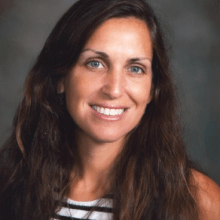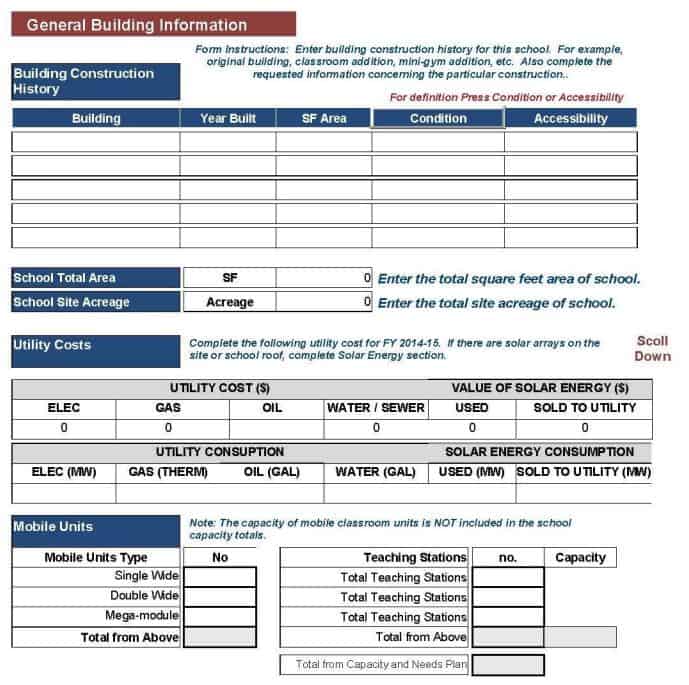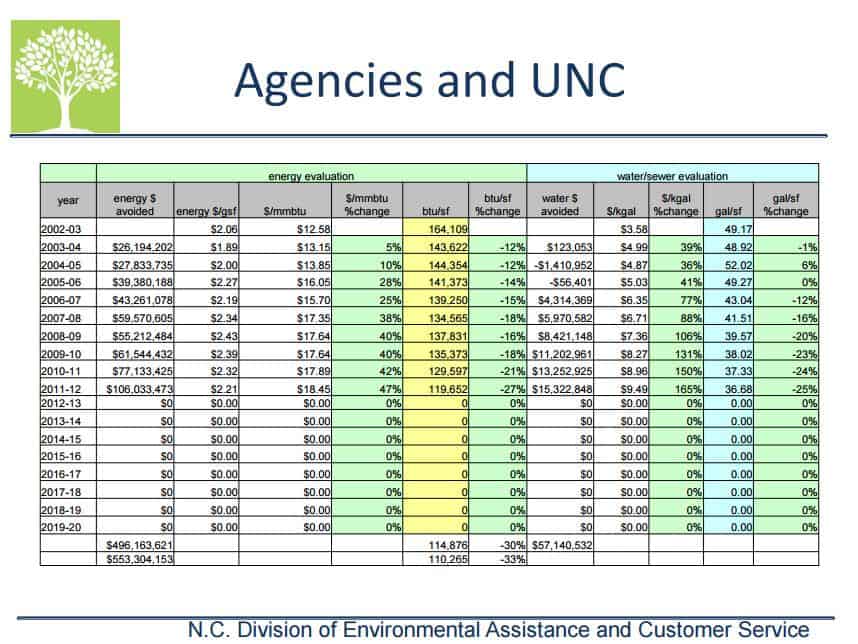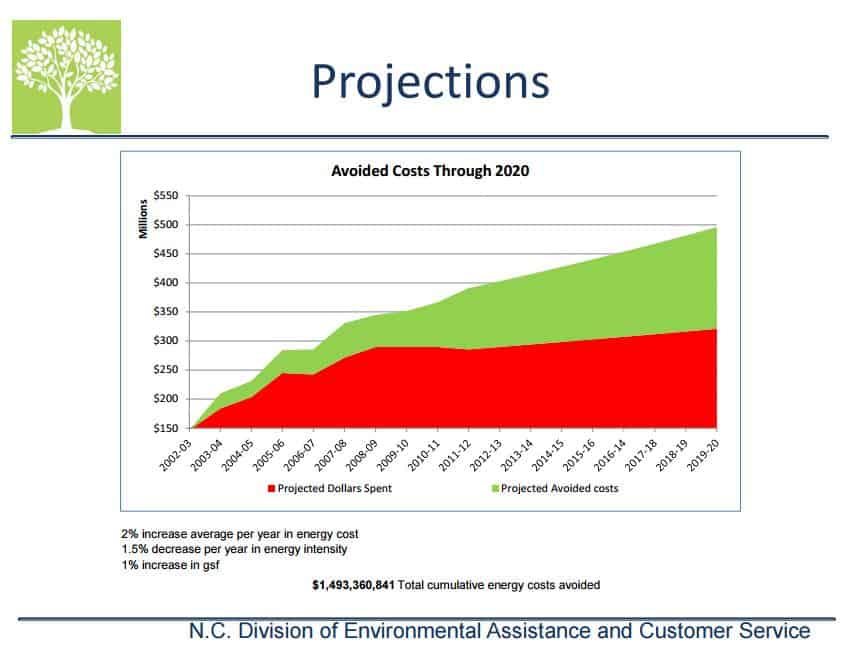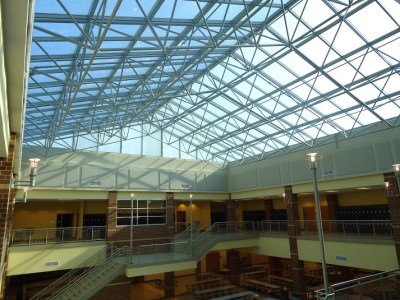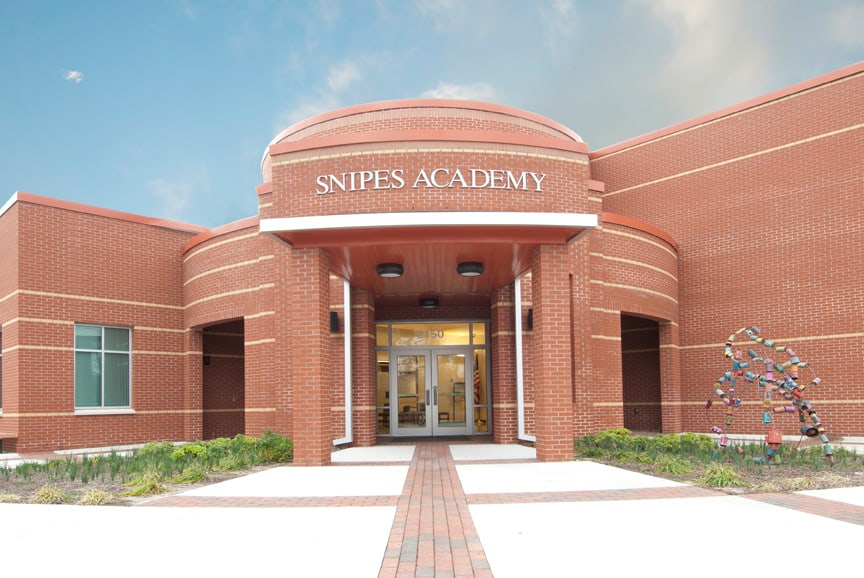

Up until this past August there has been no mandated utility reporting. If a school system wants to know if they are good stewards of tax dollars and the environment they currently have no clearinghouse to compare their utility data.
That all changes this year!
Every five years, local boards of education are required by N.C. General Statute § 115C-521(a) to submit their Facility Needs Assessment (long range plans) to the State Board of Education, and for the first time the 2015-2016 survey is requiring 2014-2015 (last year’s) utility data as a benchmark going forward.
Source: 2015-16 DPI Facility Needs Survey, 2015 Forms for Distribution.
“The DPI Facility Need Survey requiring utility information is a step in the right direction,” said Dr. Eric Cunningham, Associate Superintendent at Nash Rocky Mount Schools. “Utility usage is a great measurement to recapture cost savings. This information is useful because it allows policy makers to better understand a district’s capacity to save real dollars and redirect those monies to other important needs. There are so many moving parts that must work together in concert for a district to meet student achievement goals. Unfortunately, they all take money so where does that money come from? It comes from analyzing, measuring, and implementing solutions that are specifically designed to reduce costs. Utility usage and infrastructure improvements are great ways to start.”
A sneak peek at the data
We asked the U.S. Green Building Council – N.C. Chapter’s summer intern to investigate what is out there. Justine Frerichs, a rising sophomore at Davidson College, dug into final budgets, projected budgets, and operations websites for two days and came up with “Utility Costs Per Pupil” for a few school systems. She pulled data from North Carolina public school systems whose student body ranged from 25,000 to 155,000 and whose utility cost per student was between $162 and $249 per student. Why is there such a range? What can we learn from this? What opportunities can we gather from the more efficient districts? While published data, such as the above numbers found on districts’ websites, is an essential step, we need to make sure that the gathering and reporting of information is consistent. We need to know if districts are reporting actual expense or proposed budgets? What utilities are included in their calculations?
Justine’s research illuminates the case for DPI’s efforts to standardize and capture information as a benchmark for comparisons moving forward.
|
School System |
Total Cost |
Enrollment |
Utility Cost Per Pupil |
|
Onslow County (Proposed budget 2015-16) |
$6,305,000 |
25,250 |
$249.7 |
|
Durham County (Budget FY 2013-14) |
$7,853,246 |
33,296 |
$235.86 |
|
Johnston County (Final Expenses 2014) |
$8,116,801 |
34,660 |
$234.18 |
|
(Energy and Physical Plant web-page 2015) |
$31,967,904 |
155,184 |
$206 |
|
(Energy Management web-page 2015) |
$5,843,648 |
29,538 |
$197.83 |
|
(Sustainability Report 2014) |
$9,104,590 |
53,063 |
$171.58 |
|
(Energy Management web-page 2015) |
$23,652,000 |
145,112 |
$162.99 |
Why such disparity? Each school system’s utility costs are impacted by various factors including:
local utility costs
school design
facility operations
school culture/human operation
access to technology
Why is statewide utility data so important?
In 2003, the North Carolina legislature developed the Utility Savings Initiative (USI), a “lead-by-example program, to manage utility consumption and costs in the public sector. State buildings operate on performance goals that are based on previous benchmarked data. For fiscal year 2013-14, total utility expenditures for state agencies and UNC institutions were more than $344 million dollars. Had the Utility Savings Initiative not been in place, taxpayers would have paid an additional $154 million for utilities.”
USI services are now available to K- 12 public schools. These services include communication and training, preliminary energy audits, data collection and analysis, assistance to participants with their energy plan implementation, and overseeing the Energy Performance Contract process.
“Without tracking it is difficult,” said Len Hoey, Utility Savings Initiative team energy engineering manager “We have to see how much we are spending. If we can save 5 percent or 10 percent. The first year you don’t even have to go after the 30 percent that is probably there.”
Source: http://portal.ncdenr.org/c/document_library/get_file?uuid=e79c1e08-7a7f-4c74-9948-0eee31b4c3d2&groupId=38322
Mr. Hoey encourages school systems to look into Buncombe, Cumberland, Guilford, Hoke, Nash-Rocky Mount, and Vance as leaders in taking advantage of “Performance Contracting.” According to the N.C. Department of Environmental Quality website, “Performance contracting is a method of financing, designing, and building major utility saving projects that will have a return on investment through immediate cost-savings.” Also look for the high performance buildings like New Hanover County’s Snipes Academy of Art and Design.
Hoey understands, “It is hard to come back and tell a teacher that you really need to make sure you don’t have that space heater, turn the lights off, adjust the blinds. They are so busy keeping ahead of the alligators in the swamp, and we know they are too busy to put the bug bombs out to take care of the mosquitoes. It has to be made a priority with superintendents and principals. They have to want to save the energy. It is just hard with all the uncertainty about budgets, and just trying to keep teachers in the classroom to do their primary function.”
His team hopes to expand collaborations with K-12 school systems as educational leaders realize their capacity to expand school budgets through energy savings.
